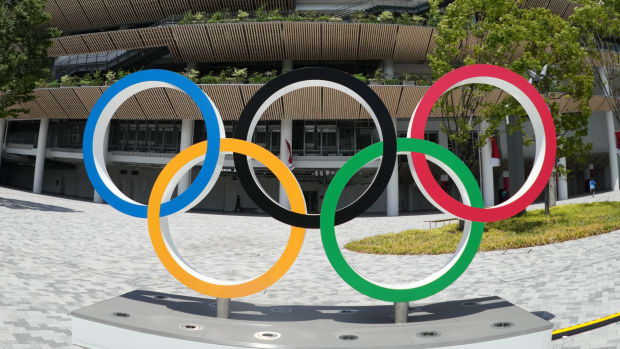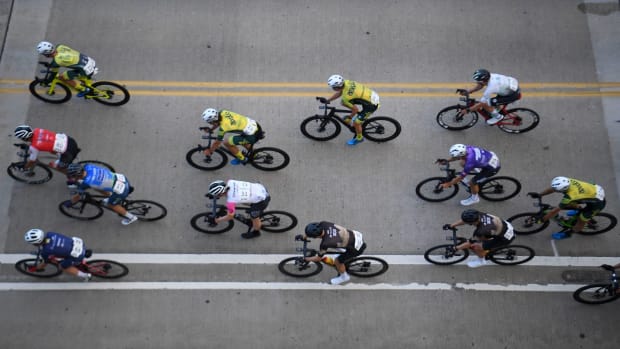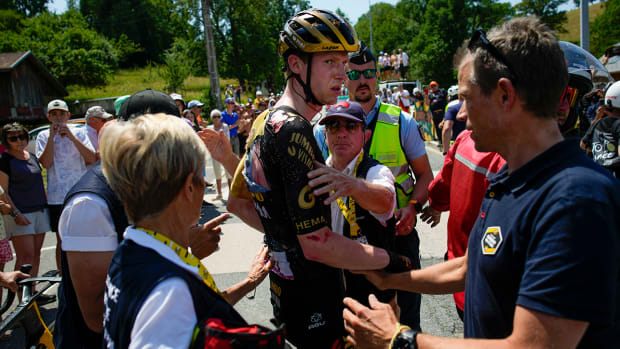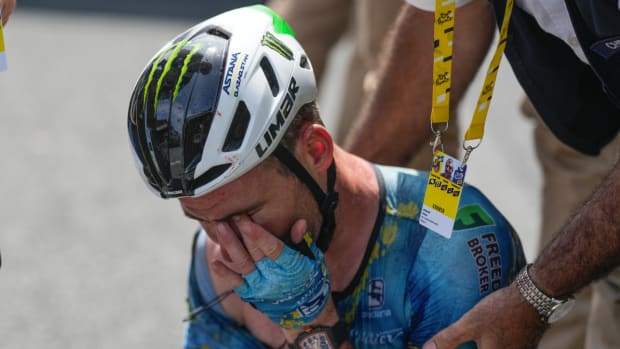World championships proving to be referendum on doping
RICHMOND, Va. (AP) One of the first things riders are required to do after crossing the finish line at the world championships is turn right, follow the bright red signs and report to doping control.
This is not unique, mind you. There has always been an attempt to catch drug cheats in cycling, even if unsuccessful for far too many years. But what may be unique at this year's championships has been the fact that doping is an after-thought rather than an ever-present story line.
It may be the most significant sign yet the sport has moved past its drug-addled past.
''There will always be people who try to cheat,'' UCI president Brian Cookson told The Associated Press, ''but slowly, we're restoring the integrity of the sport and the reputation of the sport after those years where people cheating were the ones gaining notoriety.''
Purging the sport's sordid past was among the main planks that Cookson ran on during elections for cycling's top job two years ago. And once elected, he formed an independent commission that took to task not only the UCI but teams, riders and others associated with the sport for being complicit in allowing doping to overtake athletic performance as the pathway to success.
That was only one step in cleaning up the sport, though.
Cookson also strengthened ties between the UCI and World Anti-Doping Agency, and sought to create independent anti-doping procedures to curtail conflicts of interest. Advancements were made in the biological passport program that catalogues blood data of riders, a storage and retesting system is under development, and night-time testing is being implemented.
''I think we've put some of the demons in the past,'' said USA Cycling chief executive Derek Bouchard-Hall, himself a former professional cyclist who recalls competing in major races such as Paris-Roubaix, where ''you just knew it wasn't a level playing field.''
One of the biggest challenges that remains is testing is inherently one step behind. New ways to cheat are always being developed, and in turn require the development of countermeasures.
The case of American rider Tom Danielson is a prime example.
The two-time winner of the Tour of Utah, Danielson returned a positive out-of-competition test earlier this year for synthetic testosterone, a notoriously difficult substance to detect. What caught him was a fairly new, highly precise test called Carbon Isotope Ratio, which uses molecular weight to differentiate between synthetic and natural testosterone.
Why aren't these cutting-edge tests used more frequently? The main reason is cost. Traditional urine and blood testing, while less effective, are a fraction of the price.
Testing is only one way to rid the sport of drug cheats, though. A more cost-effective method - and some argue more successful - is to change the very mentality of riders.
During the 1990s and early 2000s, the use of performance-enhancing substances was viewed as part of the job, as common as training rides or post-race massage. Young racers would be introduced to it by veterans in a vicious cycle that kicked clean riders to the curb.
That mindset has changed, said Jonathan Vaughters, who admitted to doping during his own riding career before founding the Cannondale-Garmin team on the principles of clean racing.
Now, riders who test positive are often chastised by their own teammates.
''It's become like small-town justice. `Stop by my room, I'm going to kick your ass,''' Vaughters said. ''That attitude is so 180-degrees different from when I was a rider. When I was a rider, we joked about EPO. Riders, doctors, we talked about it openly. I don't want to say it was encouraged, but it was socially acceptable to be doping. There was nothing.
''Now, peers are the ones saying, `Get the hell out of here. Don't ever come back.'''
There have been no positive tests returned during this week's world championships, though that could always change in the coming weeks and months. But officials believe the fact that doping has been an afterthought to some spectacular racing in Richmond is a sign of progress.
Just maybe, the sport's checkered past is finally history.
''Any reasonable person questioning if it's morally acceptable, that has changed,'' Bouchard-Hall said. ''It's clear. Everybody understands that doping is cheating. There's no excuses.''




